#maximilen robespierre
Note
hi there!! i was wondering you knew anything about the relationship between robespierre and marat? ive been seeing some information that robespierre wasnt fond (or at least less fond??) of marat than marat was of robespierre, but havent found any other information about it unfortunately. thanks :)!
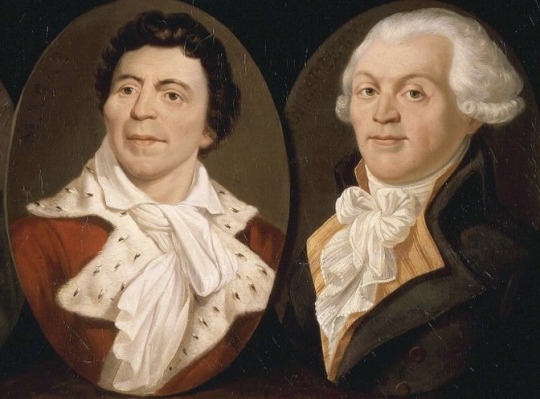
In total, Marat mentions Robespierre around 90 times in his journals from his debut in September 1789 up until his death in July four years later. The first time he does so (which also happens to be the first connection I’ve been able to find between the two) is already in the second number of l’Ami du Peuple(released September 13 1789) where he writes about a certain ”Robertpierre.” Then one day later, in number 4, he instead mentions a ”Robers-Pierre.” In both these instances, Marat does however appear to just give the exact same summary as three other journals, and there’s value put into it whatsoever.
It would appear Marat never got a hold on how to spell Robespierre’s name properly, as he throughout the rest of his career as a journalist inconsistently shifts between calling him ”Robespierre,” ”Roberspierre” and, in some rare instances, ”Robertspierre.” The next time he mentions him is in number 81 (December 29 1789). The following three times Robespierre is brought up in l’Ami du Peuple are the very first instances of Marat showing his own thoughts on him instead of just giving a neutral summary of things he’s said at the National Assembly:
M. de Robespierre and especially Mr. Charles de Lameth energetically fought against the inconsiderate proposal to give praise to officers, whose conduct has harmed the liberty and security of citizens.
l’Ami du Peuple, number 101 (January 18 1790)
M. de Robespierre supports the motion of Mr. de la Salcette, with more or less solid arguments.
l’Ami du Peuple, number 104 (January 21 1790)
…to remove from the fatherland its most zealous defenders, [the Municipal Research Committee] pushed its audacity to the point of directing its pursuits against Barnavre, Péthion [sic] de Villeneuve, the Lameths, d'Aiguillon, Roberspierre [sic]..., cherished names of the free France, to which it had added those of La Fayette and Mirabeau.
l’Ami du Peuple, number 108 (May 20 1790)
This praising of Robespierre is something Marat would consistently keep up throughout the rest of his journalistic career. Only throughout the rest of 1790, we find him calling him ”the wise Robespierre” (number 156 (July 7), ”the loyal Robespierre” (number 210 (September 3), an orator with ”great principles” and ”excellent views […] [that] we have no doubt he will develop in a way that will cause a sensation.” (number 265 (October 29) and ”[a man] who’s heart always appears to be animated with the purest of civism” (number 320 (December 24), listing him among deputies he considers ”patriotic” (number 156 (July 7), number 188 (August 11), number 210 (September 3), number 277 (November 11), number 288 (November 22), number 292 (November 28) and at one point even playing him on a higher level than so, calling him ”the only deputy who is educated in great principles, and perhaps the only true patriot who sits in the Assembly” (number 263, October 27).
February 2 1791 is the first instance where Robespierre in his turn is recorded to have mentioned Marat’s name. He does so defending the journalist at the Jacobins after an arrest warrant has been issued against him for an article recently published in his paper. Desmoulins’ Révolutions de France et de Brabant, the journal giving the most detailed description of the defence, summarizes it in the following way:
At the same session at the Jacobins, Robespierre, the only member of the National Assembly to whom the severe Marat would not have given the black ball, also took up his defense. He made us aware of the absurdity of the crime that the president of research attributed to the Friend of the People, of getting along with the English. Marat had never ceased to deplore the trade treaty of 1786 with the English, and to vociferate against Pitt, and against the intelligence of the cabinet of S. James, with the Austrian committee of the Tuileries. In favor of Marat was also this thing which militates so strongly for all patriotic writers: if the Friend of the People is extreme and angry, at least it is in the direction of the revolution. On what front did the research committee sign this order against him, under the ridiculous pretext of intelligence with the English, while it at the same time leaves Durosoi, as extreme, as bloodthirsty as Marat, in peace, and so many other friends of the king, the nobility and the clergy, who did not even hide their understanding with the Austrians, with all our enemies, and every day invite them with loud cries to come and slaughter the patriots. There is no reply to this reasoning; so Voidel, who saw his condemnation in everyone's eyes, recognized his sin, and promised to withdraw the order and remove the sentence.
In a speech regarding liberty on the press held on May 11 1791, Robespierre also says that ”if it is true that the courage of writers devoted to the cause of justice and humanity is the terror of the intrigue and ambition of men in authority; the laws against the press must become in the hands of the latter a terrible weapon against liberty,” which according to the by publisher inserted footnote is an allusion to the situation of the journalists Desmoulins and, especially, Marat.
Marat in his turn continued his praising of Robespierre throughout the same year. Besides grouping him together with other men considered patriotic (number 342 (January 16), number 371 (February 14), number 382 (February 25), number 392 (March 7), number 455 (May 11), number 519 (July 15), number 526 (August 1), number 562 (September 30) and calling him things such as ”the loyal Robespierre ”(number 367 (February 8), number 478, number 443 (April 29), number 458 (May 14), (June 3), number 488 (June 13), number 520 (July 16), number 521 (July 17) ”the just Robespierre” (number 409 (March 24) and ”the virtuous Robespierre” number 438 (April 21) he also goes further in placing Robespierre on a higher level than his fellow representatives, frequently going so far as to call him ”the only pure member of the Assembly” (number 414 (March 29), number 462 (May 18), number 472 (28 maj), number 475, May 31, number 504 (June 28), number 510 (July 4), number 511 (July 5). He also starts to frequently refer to Robespierre as ”the Incorruptible”number 458 (May 14), (number 462 (May 18), number 504 (June 28), number 514 (July 8), number 513 (July 13), number 545(September 4), number 551 (September 10) In his Robespierre biography (2014), Hervé Leuwers writesthat, if it was Fréron who coined the nickname, Marat nevertheless did a lot to popularize it. Finally, his number 515 (July 9) Marat dedicates entirely to the ”superb speech” held by Robespierre regarding the flight to Varennes two weeks earlier. His admiration did not go unnoticed by other journalists besides Desmoulins, such as those behind Les Sabbats jacobites, who on April 10 1791 called Robespierre ”the hero of Marat” and those behind Journal générale de France who called him ”the god of Marat, Garat, Carra, Corsas and Marte” on June 13 the same year.
Once Robespierre on September 30 ceases to be a member of the National Assembly, the apperences of his name in l’Ami du peuple do however rapidly decrease, only appearing two more times (number 603 (November 19), number 618, December 6) until Marat temporarily puts it down on December 15.
The first actual meeting between Marat and Robespierre didn’t take place until January 1792, as revealed by the latter ten months later. By then, the two almost lived neighbors since about a month back, Marat having gone to live with the Evrard sisters on 243 rue Saint-Honoré in Decenber, not far from the Duplay house on number 366 on the same street.
One of the most terrible reproaches that people have aimed against me, I do not hide it, is the name of Marat. I will therefore begin by telling you frankly what my contacts with him have looked like. I could even make my profession of faith on his behalf, but without saying more good or more bad than I think, because I do not know how to translate my thoughts to appeal to general opinion. In January 1792, Marat came to see me. Until then, I had not had any kind of either direct or indirect relationship with him. The conversation turned to public affairs, about which he spoke to me with despair. I told him everything that the patriots, even the most ardent ones, thought of him; namely that he himself had put up an obstacle to the good that could be produced by the useful truths developed in his writings, by persisting in eternally returning to extraordinary and violent proposals (such as that of making five to six hundred guilty heads fall), which revolted the friends of liberty as much as the supporters of the aristocracy. He defended his opinion; I persisted in mine, and I must admit that he found my political views so narrow that some time later, when he had resumed his journal, which had been abandoned by him for some time, reporting on the conversation of which I have just described speaking, he wrote in full that he had left me, perfectly convinced that I had neither the views nor the audacity of a statesman; and if Marat's criticisms could be titles of favor, I could still place before your eyes some of his sheets, published six weeks before the last revolution, in which he accused me of feuillantism, because I, in a periodical work, did not say out loud that the constitution had to be overthrown. After this first and only visit from Marat, I found him again at the National Assembly.
In number 648 (May 18) of l’Ami du Peuple, Marat gives his own version of this meeting:
I therefore declare that not only does Roberspierre [sic] not have my pen at his disposal, although it has often served to do him justice; but I protest that I have never had any note from him, that I have never had any direct or indirect relationship with him, that I have never even met him but once; also in this instance, our interview served to give rise to ideas and to manifest feelings diametrically opposed to those that Guadet and his clique attribute to me. The first word that Robespierre addressed to me was the reproach of having myself partly destroyed the prodigious influence that my paper had on the revolution by dipping my pen in the blood of the enemies of liberty, by speaking of rope, of daggers, no doubt against my heart, because he liked to convince himself that these were just empty words dictated by circumstances. Learn, I replied to him immediately, that the influence that my paper had on the revolution was not due, as you believe, to these close discussions in which the vices of the fatal decrees prepared by the Constituent Assembly are methodically developed, but to the terrible scandal that it spread among the public, when I unceremoniously tore the veil which covered the eternal plots hatched against public liberty by the enemies of the fatherland, people conspiring with the monarch, the legislators and the main custodians of authority; but to the audacity with which I trampled underfoot every detracting prejudice; but to the outpouring of my soul, to the impulses of my heart; to my violent protests against oppression, to my impetuous outings against the oppressors; to my painful accents; to my cries of indignation, fury and despair against the scoundrels who abused the trust and power of the people to deceive them, rob them, load them with chains and precipitate them into the abyss. Learn that there has never been a decree attacking liberty and that never an official has allowed himself an attack against the weak and the oppressed, without me having hastened to raise the people against these unworthy prevaricators. The cries of alarm and fury that you take for empty words were the naive expression with which my heart was agitated; learn that if I had been able to count on the people of the capital after the horrible decree against the garrison of Nancy, I would have decimated the barbaric deputies who had issued it. Learn that after the investigation of the Châtelet on the events of October 5 and 6, I would have had the unfair judges of this infamous tribunal perished at the stake. Learn that after the massacre on the Champ-de-Mars, had I found two thousand men animated by the feelings which tore me apart, I would have gone at their head to stab the general in the middle of his battalions of brigands, to burn the despot in his palace and impale our atrocious representatives on their seats as I declared to them at the time. Robespierre listened to me with fear, he turned pale, and remained silent for some time. This interview confirmed for me the opinion that I had always had [sic] of him: that he combined with the knowledge of a wise senator the integrity of a truly good man and the zeal of a true patriot, but that he also lacked the views and audacity of a true statesman.
In 1793, Jacques Roux also claimed to have gone home to Marat the year before and there have received ”a letter for Robespierre and for Chabot, the goal of which was to interest the Jacobin club to propagate an edition of your works.” I can however find no letter from Marat to Robespierre in the latter’s correspondence, nor even a letter to or from Robespierre that so much as mentions Marat (and the same thing goes for Marat’s correspondence). So did Robespierre actually receive this letter, we might assume he didn’t think all that much about it.
Despite Robespierre’s frosty attitude, Marat continued to hold admiration for him when he started up his journal again on April 12 1792, dedicating almost all of number 648 (May 3) and number 660 (May 29) with defending him against girondin attacks, a struggle which he describes as existing ”between the traitor Brissot and the Incorruptible Robespierre” (number 643 April 28 1792).
On September 9, Robespierre held a speech which he ended by recommending voting for Marat and Legendre for the National Convention (he did however deny that be had singled out Marat ”any more particularly than the courageous writers who had fought or suffered for the cause of the revolution” two months later). On September 21 1792, the day after the opening of said Convention, the last number of l’Ami du peuple appears, and a few days later Marat starts a new journal — Journal de la République française (it changed name to Le Publiciste de la République française in March 1793) that would run up until his death in July the following year. In total, Robespierre’s name gets mentioned around 35 times in this journal. As far as I can see, Marat does however appear to have cooled down a bit with his praising, mostly mentioning Robespierre in the context of reciting something he’s said or at tops mentioning him alongside other ”patriotic” deputies. In number 239, released the day before his death, Marat inserts a letter to Robespierre from a certain Labenette, ”orator of the people.”
The fact that Robespierre and Marat didn’t have any contacts with one another was not something that was believed by all contemporaries. Already in 1791, the journal Le Défenseur du Peuple had describedthe former as ”the friend of Marat, who he pretends to doesn’t know.” These allegations got a lot more serious in the fall of 1792, with the two plus Danton being accused of wanting to form a triumvirate, or having arranged the September Massacres together. On September 25 Marat openly denied that any of these allegations aligned with reality, that he had discussed the idea if a dictatorship or triumvirate with Danton and Robespierre, but that both had rejected it:
Certain members of the Paris deputation are accused of aspiring to dictatorship, to triumvirate, to tribunate; This absurd indictment can only find supporters because I am part of this deputation: well! monsieurs, I owe it to justice to declare that my colleagues, notably Danton and Robespierre, constantly rejected any idea of dictatorship, triumvirate and tribunate, when I put it forward; I even had to break several lances with them on this subject.
The very same day, Robespierre made allusions to Marat when regretfully declaring ”it was then that the thoughtless phrases of an exaggerated patriot or the signs of confidence he gave to men whose incorruptibility he had experienced for three years were attributed to us as crimes.”
On October 19 appeared the first number of Lettres de Maximilien Robespierre, membre de la Convention nationale de France, à ses commettants. In number 6, when discussing Marat getting interupted when laying out some own theories on the battalions of Mauconseil to the point that the Jacobins have to move with the agenda due to the tumult, Robespierre writes: ”Whatever the deviations of Marat's imagination, good citizens nonetheless groaned to see personal sentiments make the interests of immocence and oppressed patriotism forgotten, and hateful passions banished from the sanctuary of the laws. dignity, calm and love of humanity.” In number 9 he also writes that ”in his wanderings, Marat often encountered the truth.”
Robespierre also mentioned Marat when the Lettres in January 1793 got renewed for a second edition, starting already in number 1, where he for long defended himself against the girondin Gensonné linking him and Marat together:
What obstinacy to want me to be someone other than myself? It doesn't even matter to you that everyone believes that I named Marat: having been unable to succeed, you have decided to repeat my name so often with his, that I was at least taken for an accessory of this great character, so celebrated in your pages; as if I had not had an existence of my own, several years before you had decided to strip me of it; as if my constituents and my fellow citizens had not been able to judge me by my own actions; while Marat wrote underground, and Brissot still obscurely intrigued, with the henchmen of the old police, his colleagues, and crawled in the antechambers of the men in power. In the past, I still remember, Brissot and a few others had entered into I don't know what conspiracy to make my name almost synonymous with that of Jérôme Pétion; they took so much trouble to put them together. I don't know if it was for love of me or of Pétion: but they seemed to have plotted to send me to immortality, in company with the great Jérôme. I have been ungrateful; and, to punish me, they said: since you don't want to be Pétion, you will be Marat. Well, I declare to you, monsieurs, that I want to be neither. I have the right, I think, to be consulted on this, and you will perhaps not dispose of my being in spite of myself.
It's not that I want to deny Marat the justice that is due to him. In his papers, which are not always models of style or wisdom, he nevertheless stated useful truths, and waged open war against all powerful conspirators, although he may have been wrong about a few individuals. I know that he did not spare you yourselves: but this merit has not erased in my eyes, these extravagant sentences which he sometimes mixed with the healthiest ideas, as if to give to you and to your likes, the pretext of slandering liberty. It was said a long time ago that, in this respect, Marat was the father of the moderates and the feuillans; we could say for the same reason that he is also your boss; and we would be tempted to believe that he only punishes you because he loves you. I bet you love him too, although you pretend to shout very loudly at the slightest correction he gives you. Indeed, what would you be without him? What would become of all your newspapers and all your harangues if he had not written these two or three absurd and bloodthirsty sentences, which you constantly strive to repeat and comment on? You would have perhaps been reduced to becoming patriots, if he had not provided you with the pretext of disguising patriotism as maratism, in order to give to incivism, feuillantism, royalism and rascality, I don't know what air of wisdom and moderation.
It is so convenient for the enemies of liberty to simply appear to be the adversaries of Marat, and to confuse the cause of liberty with the person of an individual, in order to be excused from respecting it. Such was the policy of the first aristocrats, and of the heroes of the intrigue, whose disgraces you will share, after having imitated their exploits. Like them, you want to persuade all of Europe that the Republicans of France, that the partisans of the principles of equality, are only one faction, and that this faction is Marat himself. Thus, thanks to the gift of metamorphoses with which you are eminently endowed, Paris, the Jacobins, the members of the Convention, who do not bend to the views of the intriguers, and Marat are precisely the same thing. All the energetic friends of liberty are, at most, only satellites drawn into the whirlwind of this new star. With this magical name, you claim to overthrow the entire work of our revolution. It is to carry out this great work that you write, that you print, that you speak, that you plot tirelessly: but the revolution will triumph over the name of Marat, as well as over your intrigues; we will do justice to you and to him, by disproving his deviations and by disconcerting your plots. A journalist's sentences have never made a guilty head roll; but the plots of ambition that you seem to forget have caused torrents of human blood to flow. The crimes of tyranny cost humanity more disasters than the most heroic periods of the most atrocious writer. Only you, gentlemen, can give importance to an exaggerated man, much less through your declamations than through your conduct. It would not even be noticed under a wise government. It is only oppression that forces the people to pay less attention to faults that they themselves do not believe, than to the courage of those who unmask their enemies.
He defends himself against the charge of him and Marat being the leaders of a coalition, ”when these deputies, too independent to form a coalition, even with a view to the public good, see every day the coalition of factions.” again in number 3. In number 9, the second to last number, he rhetorically asks whether ”giving ridiculous importance to some inconsistent and bizarre journalist, to charge him with all the iniquities of Israel, and to identify with him all the defenders of freedom?” really is such a good way to ensure tranquility.
Between December 1792 up until the death of Marat, we find him and Robespierre taking part in the same debates at both the Convention and the Jacobin club, sometimes agreeing (December 26, February 21) and sometimes disagreeing (December 16, March 3, June 18) with each another.
On January 4 Robespierre complains that a speech made by Barère regarding the fate of Louis XVI ”contains the most violent diatribes against the patriots” for having stated ”If anything could have made me change my mind [on an appeal to the people], it would be to see the same opinion shared by a man whom I cannot bring myself to name (Marat), but who is known for his bloodthirsty opinions...” A month later, February 11, Marat and Robespierre together calmed down a group of petitioners, disgruntled over not having received a hearing at the Convention. When a representative on February 26 asked ”that Marat be temporarily expelled from the Assembly and be locked up so that it could be examined whether he was crazy” and another one ordered the referral of the denunciation to the ordinary courts, ”Robespierre approaches the president, and there he announces that if the decree passes, Paris will be burning today.”
On 12 April Robespierre spoke against the arrest order issued against Marat the very same day — ”One has requested a decree of accusation be drawn up against the warmest patriots […] Marat spoke with force, precision, and at the same time with moderation. He painted the crimes of our enemies with colors capable of making any man who has any sense of modesty blush.…”
When the indictment against Marat was presented on April 13, Robespierre took to the floor a total of three times to speak against it:
To the question that agitates us, we will not disagree that the man in question excites very strong passions; you are asked if you will decree a representative of the people immediately, or if you will postpone until Wednesday; there is no respect there for the principles, and for what we owe to the character of representative of the people: what, you would send a slanderous report, when nothing is proven, and is it not barbaric to put a representative under accusation without examination; this report is the fruit of passions and liberticidal conspiracies. […]
Yes, it will be proven that this man, whom I have always seen as patriotic, was only attacked to prove that all the Republicans in this Assembly are exaggerated and must suffer the same fate.
…As I see in this whole affair only the developed spirit of the Feuillants, the moderates and all the cowardly assassins of liberty, only a vile intrigue hatched to dishonor patriotism, the departments infested for a long time with the liberticidal writings of royalists, I reject with contempt the proposed decree of accusation.
Marat was acquitted on April 24, and four days later, a motion proposed by him with an amendment from Robespierre was passed at the Jacobin Club.
One day after the murder of Marat, July 14 1793, Robespierre spoke against the idea of granting him a state funeral, arguing that there were much more urgent things that needed to be taken care of before that could happen:
Robespierre: I have little to say to the Society. I would not even have asked to speak had the right to do so not somehow devolved to me at this moment; if I did not foresee that the honors of the dagger are also reserved for me, that priority has only been determined by chance, and that my fall is fast approaching. When a man, deeply sensitive and imbued with a love of the public good, sees his enemies raise their heads with impunity, and already share the spoils of the State, and his friends, on the contrary, frightened by oppression, flee a murderous soil and abandon it to fate, he becomes insensitive to everything, and no longer sees in the tomb anything other than a safe and precious asylum reserved by Providence for virtue. I believed that a session which followed the murder of one of the most zealous defenders of the fatherland, would be entirely occupied with the means of avenging him by serving said fatherland better than before. We haven't talked about it, and what are you occupying yourselves with in this precious time, for the use of which we are accountable? We are dealing with outrageous hyperboles, ridiculous and meaningless figures, which do not provide a remedy to the thing at hand and prevent it from being found. For example, you are seriously asked to discuss the fortune of Marat. Well! What does the fortune of one of its founders matter to the Republic? Is it a memoir that we are going to occupy ourselves with, when it is still a question of fighting for it? One is speaking of the honors of the Pantheon. And what are these honors? Who are those who lie there? With the exception of Le Peletier, I can’t see a single virtuous man there. Is it next to Mirabeau we will place Marat? Next to this intriguing man whose means were always criminal; this man who only earned his reputation through profound villainy? Here we have are the honors requested for the Friend of the People.
Bentabole: Yes, and he will obtain them in spite of those who are jealous of him.
Robespierre: Let us occupy ourselves with the measures which can still save our fatherland; let's make the effect of Pitt's guineas null. Let's bring the Cobourg and the Brunswick back to their territories. It is not today that we must show the people the spectacle of a funeral ceremony, but when finally victorious, the strengthened Republic will allow us to take care of its defenders; all of France will then ask for it and you will undoubtedly grant Marat the honors that his virtue deserves, that his memory demands. Do you know what impression the spectacle of funeral ceremonies attaches to the human heart! They make the people believe that the friends of liberty are thereby compensating themselves for the loss they have caused, and that from then on they are no longer required to avenge it; satisfied with having honored the virtuous man, this desire to avenge him dies in their hearts, and indifference succeeds enthusiasm and his memory runs the risk of oblivion. Let us not stop seeing what can still save us. The assassins of Marat and Peletier must come and atone on the Place de la Révolution for the atrocious crime of which they are guilty. It is necessary that the perpetrators of tyranny, the unfaithful representatives of the people, those who display the banner of revolt, who are convinced that they are sharpening the daggers on their heads every day, of having murdered the fatherland and a few of its members; it is necessary, I say, that the blood of these monsters responds to us and avenges us for that of our brothers which flowed for liberty, and which they shed with such barbarity. We must share the most painful burdens of the State; one must instruct all the people and gently lead them back to their duties; the other must render them exact justice: one must make food flow everywhere; the other deals exclusively with agriculture and the means of multiplying its relations; another must make wise laws; someone else must raise a revolutionary army, exercise and harden it, and know how to guide it in battle. Each of us must, forgetting ourselves at least for a while, embrace the Republic and devote ourselves unreservedly to its interests. The municipality must rule out, for the moment, a funeral celebration, which at first seemed dear to our hearts, but whose effects, as I have demonstrated, can become disastrous.
The following day, July 15, Robespierre asked that Marat’s printing presses be obtained by the Jacobins, a request a different member had already made the day before. A week later, July 22, the club tasked Robespierre, Desmoulins, Dufourny and Le Peletier’s brother with writing an adress to the French people about the murder. Said adress was printed and read aloud at the club four days later, obviously deploring of the event and praising Marat.
On August 5, Robespierre denounced Jacques Roux and Jean Théophile Victor Leclerc as ”two men paid by the enemies of the people, two men that Marat denounced [that] have succedeed, or think they have succeeded this patriot writer.” Three days later, August 8, Simonne Evrard, ”the widow Marat” presented herself before the Convention and held a long speech defending her dead fiancé’s memory, that in her view had gotten hijacked by ”scroundel writers” and in particular the two men already denounced by Robespierre. After her speech was finished, Robespierre again took to the floor to demand that the speech be printed and ”that the Committee of General Security be required to examine the conduct of the two mercenary writers denounced to it; the memory of Marat must be defended by the Convention and by all patriots.” Indeed, Roux and Leclerc would soon thereafter find themselves imprisoned, the former in September 1793, the latter in April 1794. How much of this was Robespierre being genueinly concerned for Marat’s memory and how much it was him using said memory to rid himself of a political rival I will leave unsaid…
On November 23, when Robespierre gives clarifications regarding the CPS changing the general in charge of the taking of Toulon, he says that it was on the recommendation of Marat that the new general had been promoted to rank of brigade leader. ”Marat could have been wrong, but his recommendation was a very favorable presumption in favor of an individual; he has always justified it since.” On 10 January 1794 he exclaims that ”my dictatorship is that of Le Peletier, of Marat. Or I don’t mean that, I don't want to say that I resemble them: I'm neither Marat nor Pelletier; I am not yet a martyr of the Revolution; I have the same dictatorship as them, that is to say the daggers of tyrants.” In an undelivered speech written shortly thereafter he again describes Marat and Le Pelerier as martyrs and Leclerc and Roux as”mercenary writers, daring to usurp the name of Marat, to desecrate it.”
Finally, on 9 thermidor, we find the following two claims made against Robespierre that involves Marat. (1, 2) I will leave them as they are as it’s very hard to know if they’re legit or not:
Dubois-Crancé: I must pay tribute to the sagacity of Marat: at the time of the judgment of the tyrant Capet, he said to me, speaking of Robespierre: ”You see that rascal? That man is more dangerous for liberty than all the allied despots.”
Collot d’Herbois: I am going to cite a fact which will prove that Robespierre, who for some time spoke only of Marat, always hated this constant friend of the people. At Marat's funeral, Robespierre spoke for a long time on the platform that had been set up in front of the Luxembourg, and the name of Marat did not come out of his mouth once; Can the people believe that a person loves Marat when he angrily declares that he doesn’t want to be assimilated to him? No, although these hypocrites talked incessantly about Marat and Challier, they loved neither of the two.
Alphonse Esquiros, who tracked down Marat’s younger sister Albertine for an interview in the 1830s or 1840s, reported that it was ”with bitterness” she spoke of Robespierre. ”There was nothing in common, she added, between him and Marat. Had my brother lived, the heads of Danton and Camille Desmoulins would not have fallen.”
Robespierre’s little sister Charlotte (who Albertine despised) did in her turn write the following regarding the relationship in her memoirs (1834). This anecdote is however suspeciously similar to the meeting Marat and Robespierre describe as having happened in January 1792, in which Charlotte impossibly could have taken part, still not having gone to Paris by then:
I have often heard my brother’s name attached to that of Marat, as if the way of thinking, the sympathies, the acts of those two men were the same, as if they had acted in concert. It is thus that the portraits and busts of Voltaire and Rousseau are placed side by side, as if those two great writers had been the best friends in the world when they were alive, while in truth they found each other insufferable. I do not claim to discount Marat’s merit, nor make an attempt on the purity of his devotion and of his intentions. Some have dared to say that he was in the pay of foreigners; but have they not said that of my brother? The field of the absurd is immense and limitless. Have they not said of Maximilien Robespierre that he had asked the young daughter of Louis XVI in marriage? After such an accusation nothing should be surprising anymore; more burlesque and impossible assertions must be expected; it is the nec plus ultra of inanity. To return to Marat, I will dare to affirm that he was not an agent of foreigners, as it has pleased some to say; Marat had felt the infamies of the Ancien Régime and the poverty of the people strongly; his fiery imagination and his irascible temperament had made him an ardent, and too often even imprudent, revolutionary; but his intentions, I repeat, were good. My brother disapproved of his exaggerations and his rages, and believed, as he said many times to me, that the course adopted by Marat was more detrimental than useful to the revolution. One day Marat came to see my brother. This visit surprised us, for, usually, Marat and Robespierre had no rapport. They spoke first of affairs in general, then of the turn the revolution was taking; finally, Marat opened the chapter on revolutionary rigors, and complained of the mildness and the excessive indulgence of the government.
“You are the man whom I esteem perhaps the most in the world,” Marat said to my brother, “but I would esteem you more if you were less moderate in regard to the aristocrats.”
“I will reproach you with the contrary,” my brother replied; “you are compromising the revolution, you make it hated in ceaselessly calling for heads. The scaffold is a terrible means, and always a grievous one; it must be used soberly and only in the grave cases where the fatherland is leaning toward its ruin.”
“I pity you,” said Marat then, “you are not at my level.”
“I would be quite grieved to be at your level,” replied Robespierre.
“You misunderstand me,” returned Marat, “we will never be able to work together.”
“That’s possible,” said Robespierre, “and things will only go the better for it.”
”I regret that we could not come to an understanding,” added Marat, “for you are the purest man in the Convention.”
#robespierre#marat#jean paul marat#maximilen robespierre#frev#frev friendships#ask#unrelated but the relationship between marat’s little sister and fiancée really was the polar opposite to robespierre’s counter parts…
91 notes
·
View notes
Text
Revolutionaries' Birthdays on the Republican Rural Calendar
Note: The Revolutionary Rural Calendar was designed in 1793 by Fabre d'Eglantine to replace the Catholic Saints calendar, and ultimately help secularize France. This just includes some of the most prominent revolutionaries' birthdays in the rural calendar format :) I think all the symbols are fascinating. My birthday symbol is a grape on the calendar!
Maximilien Robespierre:
6 May = 17 Floréal = Pimprenelle (Salad burnet)

Louis-Antoine de Saint-Just:
25 August = 8 Fructidor = Apocyn (Apocynum)

Jean-Paul Marat:
May 24 = 5 Prairial = Canard (Duck)

Camille Desmoulins:
2 March = 12 Ventôse = Orme (Elm)

Georges Danton:
26 October = 5 Brumaire = Oie (Goose)

#french revolution#french rev#frev#history#jean paul marat#marat#resources#saint just#camille desmoulins#maximilen robespierre#robespierre#danton#revolutionary calendar
113 notes
·
View notes
Text

One layer doodle. Was planning to do Marat but we got called up. I also fucked up D'angers Saint Just gomenasorry
Timelapse included so you can watch me struggle
36 notes
·
View notes
Text
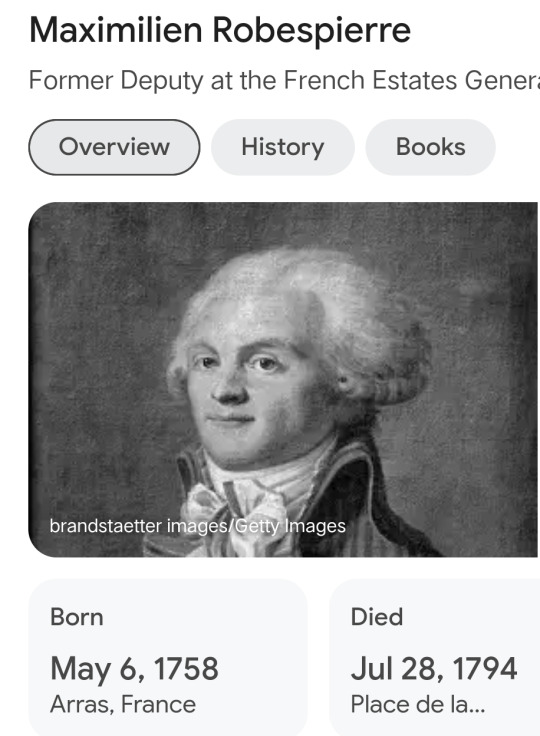

It surprises me: they were born on the same day and in the same year, and in the same country.
9 notes
·
View notes
Text
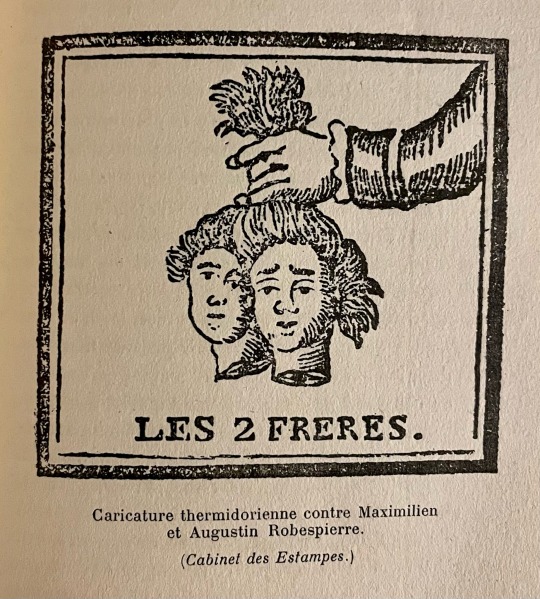
Thermidorian caricature of the Robespierres. Printed in Charlotte Robespierre et ses Mémoires. Hector Fleischmann, 1910.
9 notes
·
View notes
Text
Zooming through A Place of Greater Safety on a nine-hour flight is actually a good way to read it 10/10 would recommend you don't know if you're just sleep-deprived or if Camille Desmoulins just keeps getting funnier but either way it adds to the experience
#personal#hashtag problematic fave maximilen robespierre and his unhinged best friend#why is it impossible to find a nice cup of green tea in the dubai international airport#and why does my coffee order cost twice as much as it would have in the philippines#HILARIOUSLY. the coffee shop staff are all filipino. unsurprising.
4 notes
·
View notes
Text

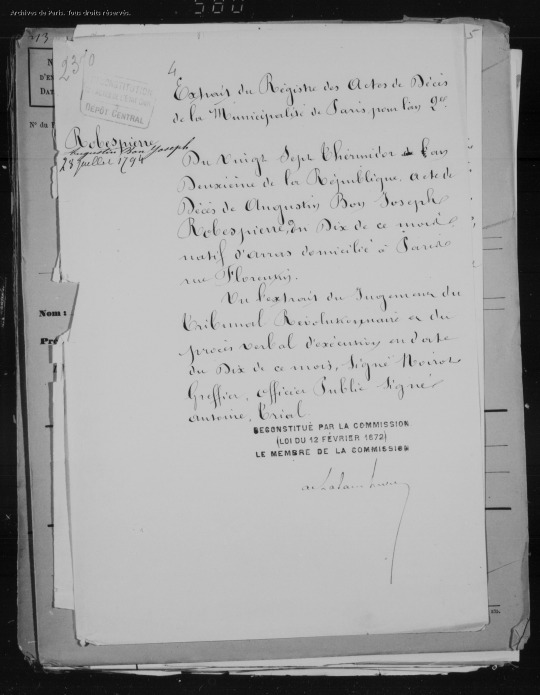

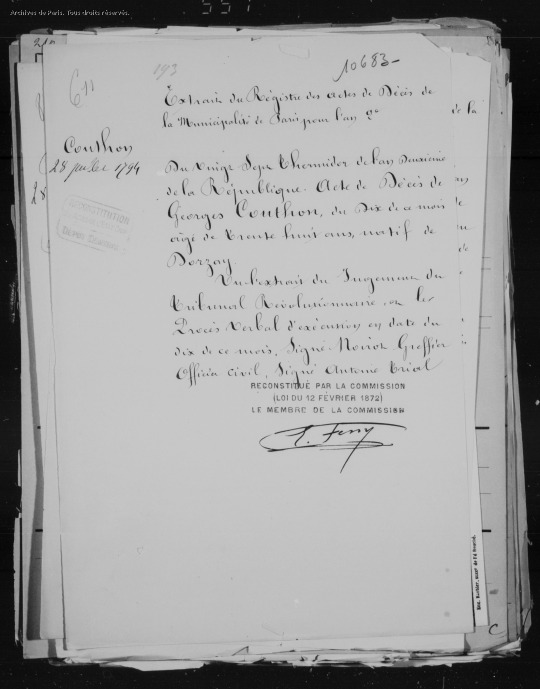

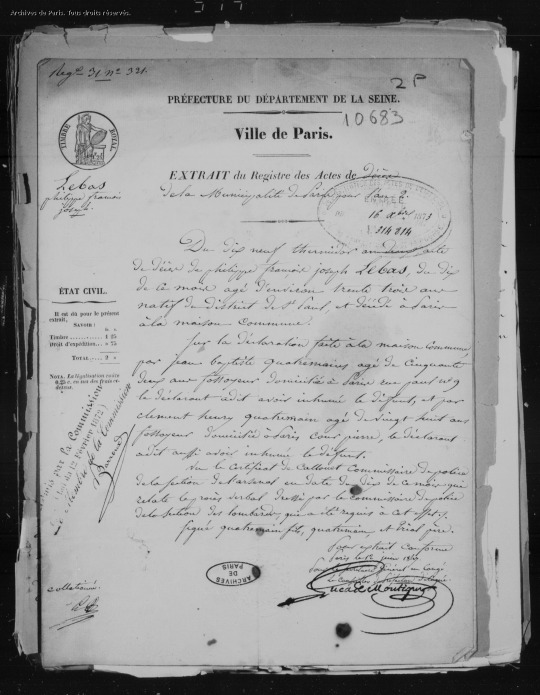
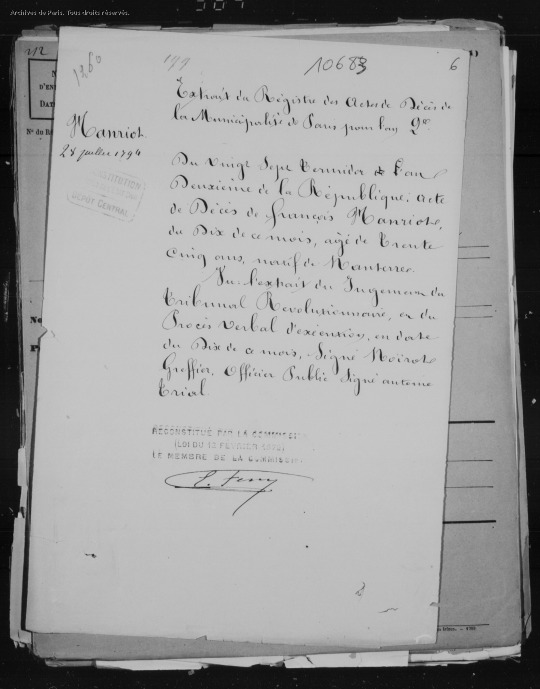
This stuff has probably already been uploaded and collated somewhere else, but I thought it was interesting enough to do my own post for anyone who might not have seen them!
The Paris Archives has several reconstructed "death documents" (Death certificates? Identification documents? Warrants? I have no idea what the right word would be here) for some of the key figures during the French Revolution.
The archive is a little complicated to search because an individual's documents are not always listed on the date of death, so I may have missed some of them.
I've divided them into three posts so that they're more organised:
The Robespierrists (hate using this word but I don't know how else to define them)
The Indulgents + Lucile
Miscellaneous
(Marie Antoinette and Louis XVI's (as Louis Capet) documents are also archived, but I'm not particularly interested in having them up here. But if you want their documents drop me a message!)
In this post:
Maximilen Robespierre
Augustin Robespierre
Saint-Just
Couthon
Le Bas
Hanriot
I'll post the link at the end!
80 notes
·
View notes
Text
Okay maybe I haven't succeeded in getting across one single coherent thought in today's meeting with my thesis supervisor — that said, I have managed to name drop:
Rousseau
Émilie du Châtelet
& Maximilen Robespierre
in the span of approximately three sentences, and I'm counting that as a success.
#no one shall be spared from my hyperfixations#may even get a sneaky citation in my thesis if I play my cards right#french revolution#frev#Rousseau#Maximilien Robespierre#robespierre#Émilie du Châtelet#history#18th century#1700s#philosophy#frev community#it was even kind of relevant? ish?#ramblings
9 notes
·
View notes
Text

concept
131 notes
·
View notes
Photo
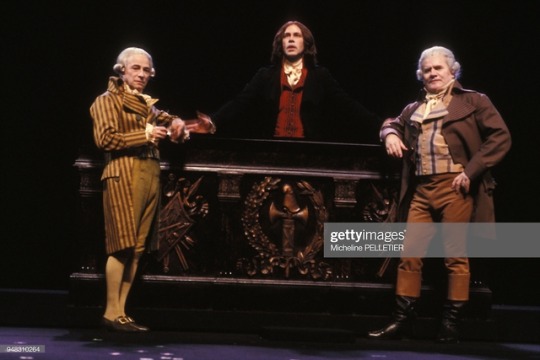

La Liberté ou la Mort, Robert Hossein, 1985
photographer : Micheline Pelletier
#gorgeous. i'm in love#frev#french revolution#saint just#la liberte ou la mort#robert hossein#maximilen robespierre
24 notes
·
View notes
Text
Thermidor…
@patientsisavertu, @fanfeline
Depends what/whom one is glorifying/commemorating: I remember loyalty, friendship and courage to the death.
I hope to visit Paris this year on 28 July. A wreath is laid at the Autel de la Convention in the Panthéon.
For Maximilien, for Augustin, for Philippe, for Antoine, for Georges, for all of those killed (without even pretence of trial); for Françoise Duplay, killed in her cell… For those left behind…
#french revolution#révolution française#thermidor#panthéon#maximilen robespierre#georges couthon#augustin robespierre#louis-antoine saint-just#philippe le bas#françoise duplay#famille duplay
15 notes
·
View notes
Text
Some primary sources
I plan to add more whenever I find more.
Historie Parlamentaire de la Révolution Française ou Journal des Assemblées Nationales, depuis 1789 jusqu’en 1815
Volume 1 (May 1789)
Volume 2 (June-September 1789)
Volume 3 (September-December 1789)
Volume 4 (December 1789-March 1790)
Volume 5 (March-May 1790)
Volume 6 (May-August 1790)
Volume 7?
Volume 8 (November 1790-February 1791)
Volume 9 (February-May 1791)
Volume 10 (May-July 1791)
Volume 11 (July-September 1791)
Volume 12 (September-December 1791)
Volume 13 (January-March 1792)
Volume 14 (April-June 1792)
Volume 15 (June-July 1792)
Volume 16 (July-August 1792)
Volume 17 (August-September 1792)
Volume 18 (September 1792)
Volume 19 (September-October 1792)
Volume 20 (October-November 1792)
Volume 21 (November-December 1792)
Volume 22 (December 1792-January 1793)
Volume 23 (January 1793)
Volume 24 (February-March 1793)
Volume 25 (March-April 1793)
Volume 26 (April-May 1793)
Volume 27 (May 1793)
Volume 28 (July-August 1793)
Volume 29 (September-October 1793)
Volume 30 (October-December 1793)
Volume 31 (November 1793-March 1794)
Volume 32 (March-May 1794)
Volume 33 (May-July 1794)
Volume 34 (July-August 1794)
Recueil des actes du comité de salut public
Volume 1 (August 12 1792-January 21 1793)
Volume 2 (January 22-March 31 1793)
Volume 3 (April 1-May 5 1793)
Volume 4 (6 May-18 June 1793)
Volume 5 (19 June-15 August 1793)
Volume 6 (15 August-21 September 1793)
Volume 7 (22 September-24 October 1793)
Volume 8 (25 October-26 November 1793)
Volume 9 (27 November-31 December 1793)
Volume 10 (1 January-8 February 1794)
Volume 11 (9 February-15 March 1794)
Volume 12 (16 March-22 April 1794)
Volume 13 (23 April-28 May 1794)
Volume 14 (29 May-7 July 1794)
Volume 15 (8 July-9 August 1794)
Recueil de documents pour l’histoire du club des Jacobins de Paris
Volume 1 (1789-1790)
Volume 2 (January-July 1791)
Volume 3 (July 1791-June 1792)
Volume 4 (June 1792-January 1793)
Volume 5 (January 1793-March 1794)
Volume 6 (March-November 1794)
Histoire du tribunal révolutionnaire de Paris: avec le journal de ses actes.
Volume 1
Volume 2
Volume 3
Volume 4
Volume 5
Papiers inédits trouvés chez Robespierre, Saint-Just, Payan etc
Volume 1
Volume 2
Volume 3
Oeuvres complètes de Robespierre
Volume 1 (Robespierre à Arras)
Volume 2 (Les œuvres judiciaires)
Volume 3 is the correspondence, listed below
Volume 4 (Le defenseur de la Constitution)
Volume 5 (lettres à ses comettras)
Volume 6 (speeches 1789-1790)
Volume 7 (speeches January-September 1791)
Volume 8 (speeches October 1791-September 1792)
Volume 9 (speeches September 1792-June 27 1793)
Volume 10 (speeches June 27 1793-July 27 1794)
Oeuvres de Maximilien Robespierre (not the same as Oeuvres completés)
Volume 1
Volume 2
Volume 3
Oeuvres de Jerome Pétion
Volume 1
Volume 2
Volume 3
Volume 4
Oeuvres complètes de Saint-Just
Volume 1
Volume 2
Oeuvres littéraires de Hérault de Séchelles (1907)
Oeuvres de Danton (1866)
Discours de Danton (1910) by André Fribourg
Works by Desmoulins
La France Libre (1789)
Discours de la Lanterne aux Parisiens (1789)
Révolutions de France et de Brabant (1789-1791)
Volume 1 (number 1-13)
Volume 2 (number 14-26)
Volume 3 (number 27-39)
Volume 4 (number 40-52)
Volume 5 (number 53-65)
Volume 6 (number 66-79)
Volume 7 (number 80-86)
La Tribune des Patriots (1792) (all numbers)
Le Vieux Cordelier (1793-1794) (all numbers)
Jean Pierre Brissot démasqué (1792)
Histoire des Brissotins (1793)
Correspondences
Correspondance de Maximilien et Augustin Robespierre (1926)
Correspondance de George Couthon (1872)
Correspondance inédit de Camille Desmoulins (1836)
Correspondance inédite de Marie-Antoinette (1864)
Billuad-Varennes — mémoires et correspondance
Correspondance de Brissot
Lettres de Louis XVI: correspondance inédite, discours, maximes, pensées, observations etc (1862)
Lettres de Madame Roland (1900)
Volume 1
Volume 2
Correspondance inédite de Mlle Théophile Fernig (1873)
Journal d’une bourgeoise pendant la Révolution 1791-1793 by Rosalie Jullien (1881)
Memoirs
Memoirs of Bertrand Barère
Volume 1
Volume 2
Volume 3
Volume 4
Memoirs of Élisabeth Lebas
In French
In English
Mémoires de Charlotte Robespierre sur ses deux frères (1835)
In French
In English
Memoirs of Joseph Fouché
Volume 1 (English)
Volume 2 (French)
Mémoires de Brissot (1877)
Mémoires inédits de Pétion et mémoires de Buzot et Barbaroux (1866)
Memoirs of Barras — member of the Directorate (1899)
Mémoires inédits de madame la comtesse de Genlis depuis 1756 jusqu’au nos jours
Volume 1
Volume 2
Volume 3
Volume 4
Volume 5
Volume 6
Volume 7
Volume 8
Volume 9
Volume 10
Mémoires de Madame Roland
Volume 1
Volume 2
Mémoires de Louvet (1862)
Memoirs of the Duchess de Tourzel: Governess to the Children of France During the Years 1789, 1790, 1791, 1792, 1793 and 1795
Volume 1
Volume 2
Révélations puisées dans les cartons des comités de salut public et de sûreté générale, ou Mémoires (inédits) de Sénart, agent du gouvernement révolutionnaire (1824)
Free books
Danton (1978) by Norman Hampson (borrowable for an hour, renewable every hour)
Robespierre (2014) by Hervé Leuwers (borrowable for an hour, renewable every hour)
Collot d’Herbois — légendes noires et Révolution (1995) by Michel Biard
Choosing Terror (2014) by Marisa Linton
The Coming of the Terror in the French Revolution (2015) by Timothy Tackett
Augustin: the younger Robespierre by (2011) by Mary-Young
Journaliste, sans-culotte et thermidorien: le fils de Fréron, 1754-1802, d’après des documents inédits (1909) by Raoul Arnaud
Un Champion de la Royauté au début de la Révolution - François Louis Suleau (1907)
Part 1
Part 2
Part 3
Part 4
Camille Desmoulins and his wife — passages from the history of the dantonists (1876) by Jules Claretie
Vadier, président du Comité de sûreté générale sous la Terreur d’après des documents inédits (1896) by Albert Tournier
Mémoires historiques et militaires sur Carnot (1824)
Le Puy-de-Dôme en 1793 et le Proconsulat de Couthon (1877) by Francisque Mège
Le procès des Dantonistes, d'après les documents, précédé d'une introduction historique. Recherches pour servir à l'histoire de la révolution française (1879) edited by Dr. Jean François Eugène Robinet
Robert Lindet, député à l'Assemblée législative et à la Convention, membre du Comité de salut public, ministre des finances : notice biographique (1899) by Amand Montier
Prieur de la Côte-d'Or (1900) by Paul Gaffarel
Un épicurien sous la Terreur; Hérault de Séchelles (1759-1794); d'après des documents inédits (1907) by Emile Dard
Twelve Who Ruled (1941) by R. R. Palmer (borrowable for an hour, renewable every hour)
Bertrand Barère: A Reluctant Terrorist (1963) by Leo Gershoy (borrowable for an hour, renewable every hour)
Saint-Just : sa politique et ses missions (1976) by Jean-Pierre Gross (borrowable for an hour, renewable every hour)
The Glided Youth of Thermidor (1993) by François Gendron
Pauline Léon, une républicaine révolutionnaire by Claude Guillon
Billaud-Varenne: Géant de la Révolution (1989) by Arthur Conte
When the King Took Flight (2003) by Timothy Tackett (borrowable for an hour, renewable every hour)
Joseph Le Bon, 1765-1795; la terreur à la frontière (1932) by Louis Jacob
Volume 1
Volume 2
Resources shared by other tumblr users (thank you all very much!!!)
Resources shared by @iadorepigeons
Resources shared by @georgesdamnton
Resources shared by @rbzpr:
Fabre d’Eglantine resources shared by @edgysaintjust
Saint-Just resources shared by @sieclesetcieux
Saint-Just resources shared by @orpheusmori
Marat resources shared by @orpheusmori
My own translations
Lucile Desmoulins’ diary (1788, 1789, 1790, 1792-1793)
Charlotte Robespierre et ses amis (1961)
Laponneraye on the life of Charlotte Robespierre (1835)
Abbé Proyart on the childhood of Robespierre (1795)
Regulations for the internal exercises of the College of Louis-le-Grand (1769)
Regulations for law students at Louis-le-Grand (1782)
Belongings left by Danton, Fabre and Desmoulins after their arrest
Letters from Robespierre’s father
Robespierre family timeline
#frev resources#frev#french revolution#maximilen robespierre#augustin robespierre#robespierre#george couthon#couthon#camille desmoulins#desmoulins#joseph fouché#fouché#charlotte robespierre#elisabeth lebas#elisabeth duplay#billaud-varennes#jerome Pétion#jacques-pierre brissot#saint-just
456 notes
·
View notes
Photo

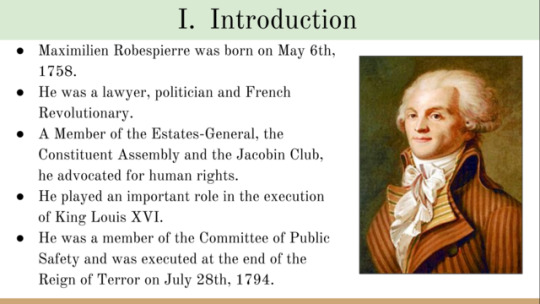
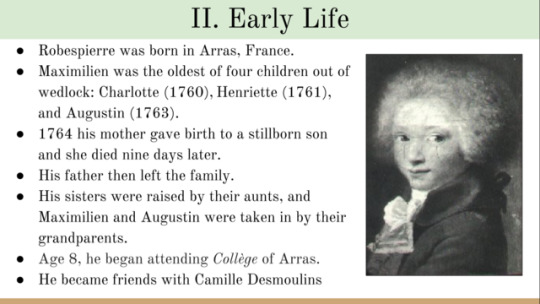


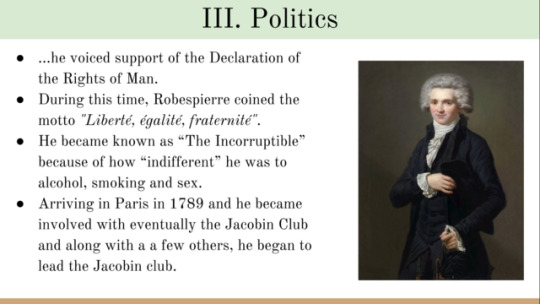
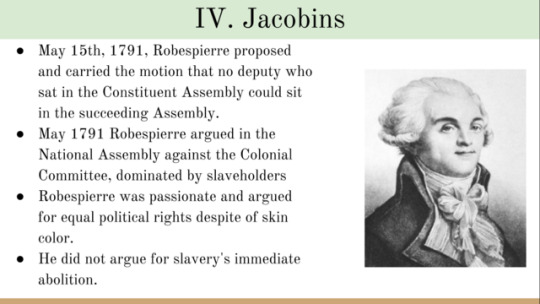

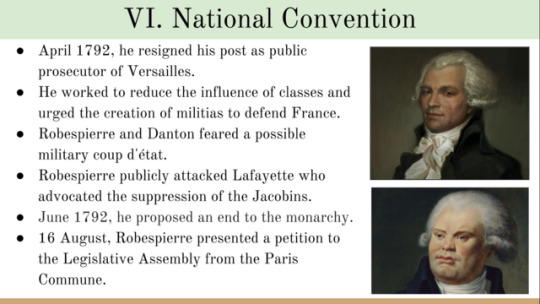
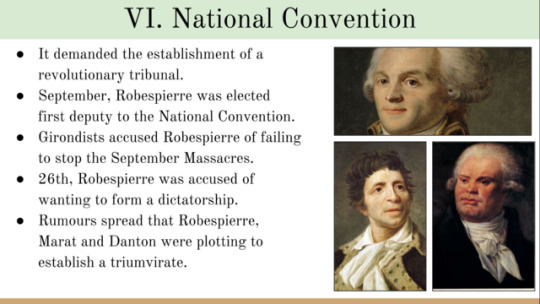

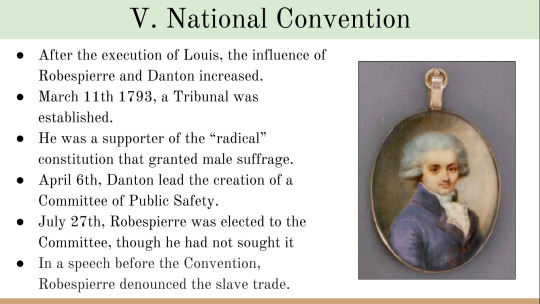
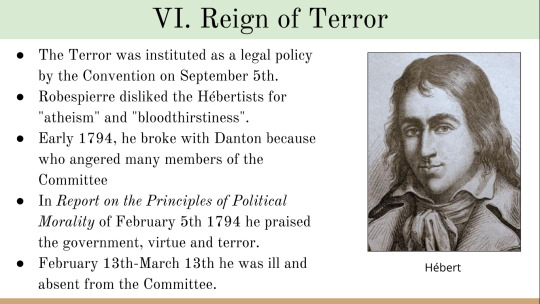
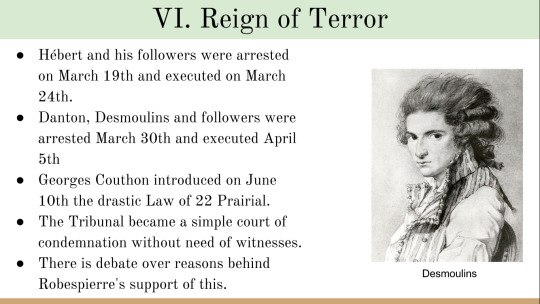


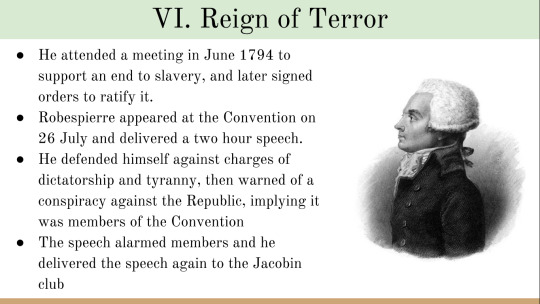

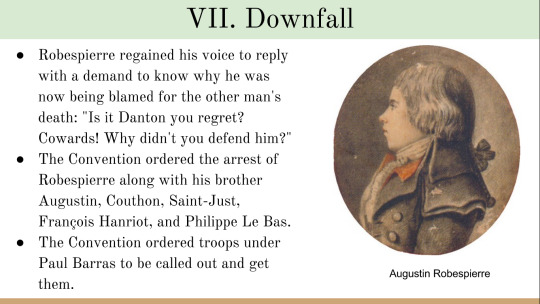
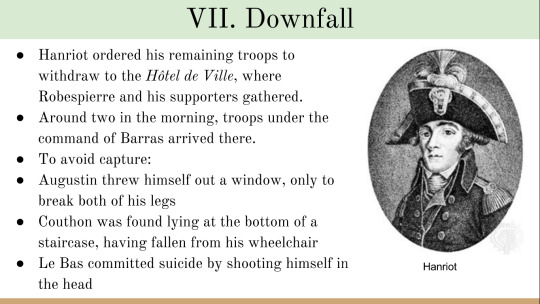
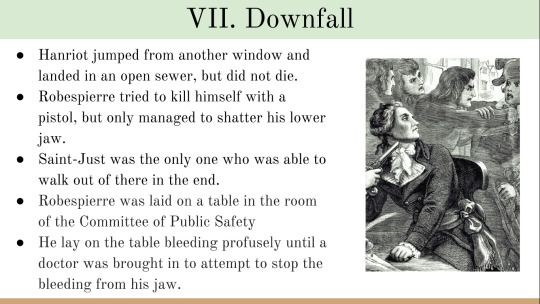
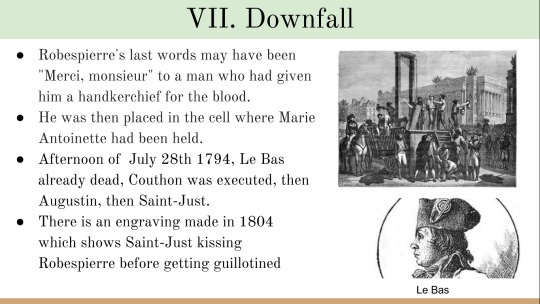
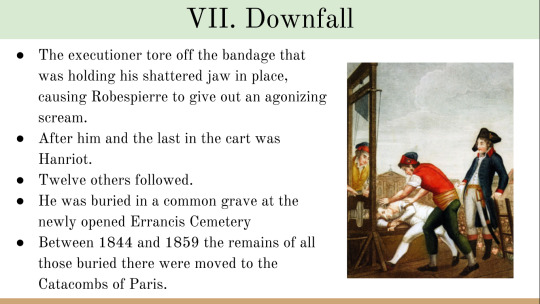

#presley your history teacher#maximilen robespierre#robespierre#french revolution#french history#history#revolution#charlotte robespierre#augustin robespierre#camille desmoulins#rousseau#lafayette#marquis de lafayette#maurice duplay#eleonore duplay#georges jacques danton#jean paul marat#danton#marat#marie antoinette#saint just#hanriot#couthon#le bas#saintspierre
733 notes
·
View notes
Text
Today I wrote the best History test I ever had in my life. Our essay task was to sentence Robespierre to death or to pardon him. Of course my teacher received a two pages long rant about how Maximilen should have been spared. I mean yeeeah they violated some points of the Declaration of the Rights of Man but come on.... nobody is perfect (btw Maximilen and Antoine were painfully close to it). So yeaaah... the genie is out of the bottle, now I can’t deny how much I stan them xD
21 notes
·
View notes
Text
Rosati was such a magical club and an era that Robespierre got acquainted with an importatnt future colleague made contributions to military affairs and a man who conspired to murder him later. Rosati might hide magic itself, about destiny.
13 notes
·
View notes
Text
ESPECIAL TIME: As you like it - Ayanagi Shou and Miya Rurika
ESPECIAL TIME is a long-running invitation talk feature in GRAPH, where one sienne is given the opportunity to invite someone else.
Ayanagi Shou’s feature, where she invited Miya Rurika, was published in the February 2018 issue.
There is also an outtake from the feature that was printed in the back of the magazine.
ESPECIAL TIME: As you like it - Ayanagi Shou and Miya Rurika
Miya: Thank you for inviting me today!
Ayanagi: No, no, thank you!
Miya: I’m really honored. This came as such a surprise…
Ayanagi: A while back, for a different assignment, I had a chance to request someone to do a talk with, so I really struggled over whether to ask you, Miya-san. We had talked a little bit in the green room and during the TCA Special, but…
Miya: (listening to Ayanagi’s accent) Oh? You’re from Kansai!
Ayanagi: Yes, I am. Did it slip out? (laughs)
Miya: Yes, but you don’t really look like you’re from Kansai. Ah, sorry, go ahead!
Ayanagi: (laughs) I have the impression of Miya-san as a ‘cool beauty’ type.
Miya: Ahaha (laughs)
Ayanagi: Therefore, at the time, I thought ‘I would be so nervous if I had to talk one-on-one with her!’ and gave up on the idea. But the next day, I heard that Miya-san had also put my name on your list of potential guests, and that made me really happy. So when I was given this talk feature, even though I was a little scared…
Miya: (bursts out laughing)
Ayanagi: I gathered my courage and requested you as my guest!
Miya: Thank you, I’m really happy. Of course, since we’re in different troupes, even though we’ll chat briefly if we end up going to a show at the same time, or if we run into each other in the hallways of the rehearsal space, but we don’t really know much about each other’s ways of thinking and such.
Ayanagi: Exactly.
Miya: We’ve had chances to talk once in a while, but I think the first time must have been when you were assigned the role of Mercutio (main cast: Sagiri Seina) in the shinjin kouen of Romeo et Juliette. We definitely talked about something. But it was so long ago I’ve totally forgotten!
Ayanagi: (laughs) I remember Miya-san speaking to me when I was ken-1 or -2. You had come to the rehearsal room to talk to your classmate Renjou (Makoto)-san, and when I passed through you said something like ‘Oh, that girl’s so pretty~’!
Miya: Did I!?
Ayanagi: I was so surprised that Miya-san would say something like that about me that I went over to you without even thinking about it (laughs)!
Miya: (laughs) Right, I always thought of you as being really pretty. Therefore, when the gossip that ‘Ayanagi Shou is going to be Mercutio!’ reached me, I was so happy. ‘She’ll be so beautiful!’ I said (laughs).
Ayanagi: No way, no (laughs).
Miya: I wasn’t able to see that shinjin kouen, so I ended up devouring the stage photos that were published in GRAPH and Kageki.
Ayanagi: Ehhhh~ (laughs). After that, you played Mercutio too, in Moon Troupe. And also Bernard from The Rose of Versailles.
Miya: Right, right. We’ve played the same roles which gives us a bit of a connection.
Ayanagi: Right now, in A Passage Through the Light: Revolutionary Maximilen Robespierre, I’m playing a female role. I thought the female roles Miya-san has played up until now were very beautiful and fascinating, so I thought that this might be a good opportunity to talk about that.
Miya: But this isn’t your first time, is it?
Ayanagi: I did [a female role] once in Nijinsky…
Miya: Ah, I saw that on DVD! You were so pretty. How was it? I think it comes with a sort of complicated feeling that only otokoyaku playing female roles can understand. Therefore, I ended up wondering what your mental state was for this role. After all, for the first show of the New Moon Troupe, La Legende du Roi Arthur, I ended up playing a witch (laughs).
Ayanagi: Ah, that was so amazing~
Miya: It was at a time when the troupe was being reformed, and I was also dealing with feeling like I had to renew myself… Looking back on it now, there was a lot of value to it, and I learned a lot, but it was a bit disconcerting for a moment (laughs). Shou-chan, you’re also doing it for Daimon’s (Nozomi’s) debut show, so how does that feel?
Ayanagi: My last show was the national tour, Nozomi-san’s pre-debut. During that time, I felt ‘Being an otokoyaku is so fun!’ once again really strongly, and I was thinking ‘I’m going to go for it in the next Grand Theatre show too!’, so at the start I was rather conflicted about it.
Miya: Ah, that’s understandable.
Ayanagi: But my role in this show is that of a strong-willed woman who can be on an equal footing with any of the men. I can use some aspects of being an otokoyaku in that as well, so I felt ‘if I’m doing this I should make the best of it!’ and now I am having a lot of fun.
Miya: See, there’s a lot of meaning when an otokoyaku plays a female role. Sorry, I haven’t actually seen the show yet so I just have to imagine (laughs).
Ayanagi: (laughs)
Miya: I’ve played female roles about 4 times now, so that’s always been something that encourages me. But now that it’s like the 4th time, it sort of feels like a party trick and I find it really fun (laughs).
Ayanagi: A party trick! (laughs)
Miya: But it really widens your horizons, right? I’m the sort of person who feels like doing pretty-boy roles all the time is a bit boring, and a while back when Shou-chan played Takeda Kanryuu in Rurouni Kenshin I felt like you really came alive in that role. I thought ‘from now on she’s going to keep broadening her outlook and become a really interesting performer’.
Ayanagi: Takeda Kanryuu was definitely from a totally different category than any other role I had ever played. At first I couldn’t even picture myself doing it, but once the curtain went up on the first day I started to have more and more fun with it.
Miya: There’s the reaction from the audience, too.
Ayanagi: Right, I suppose I was swept along by that a bit, too. So I came to really like playing that role. I think this time around I’m also picking up new skills that will be useful later.
Ayanagi: Recently, when we were both in the TCA Special, you told me “you don’t have to fuss over me so much”...
Miya: Oh, I did, I did! We were always standing right next to each other, right. So we were always chatting during rehearsals, and even when we were getting to standby for the real performance, I knew that as long as I was next to Shou-chan I’d be in the right place (laughs).
Ayanagi: (laughs)
Miya: I’m really bad at getting places and times right, you see (laughs). But really, you were so attentive to me! Even if I was just making a casual remark you’d make sure it was clear ‘I’m listening!’ and you’d ask “Are you okay if I’m standing in this spot?”
Ayanagi: Was I really?
Miya: Yeah. Didn’t you think so?
Ayanagi: No~ I didn’t really notice…
Miya: I’m not saying it’s a bad thing, of course, but when you’re there at such an amazing event I wouldn’t want you to spend your time fussing over me just because I’m your senior. It would ruin the fun during the show, I thought.
Ayanagi: Ah~
Miya: I used to be like that a long time ago. My classmates would be in front giving it their all and I’d be holding myself back behind them, like, ‘is it ok if I just dance over here?’. But now I feel like that was a bit of a waste so I regret doing that, and I wouldn’t want you to do that either. Besides, aren’t you pretty senior yourself now?
Ayanagi: That’s true. So now I’m just stressed out internally. I’m not the type of person to be able to keep everyone else in line, you see…
Miya: Is that so! Even though you’re so precise about everything?
Ayanagi: I really struggle. I don’t have confidence in myself, so I can’t say anything to the junior actresses…
Miya: I also used to be really bad with that. After all, I’m so bad at keeping track of things that I had to rely on Shou-chan to end up in the right place in rehearsals (laughs).
Ayanagi: Now, now (laughs).
Miya: So how am I supposed to know what everyone else is supposed to be doing, you know? (laughs) So in situations where I’m the most senior member in a particular scene they’ll tell me to get everyone in order, but I don’t have my own placing and choreography down (laughs).
Ayanagi: I know that feeling (laughs).
Miya: So I have to get in to the midset of ‘I’m the most senior here, so I’ll put aside everything about myself and say what I have to say!’
Ayanagi: I see. Whenever I state my opinion firmly, right afterwards I’ll start feeling really insecure, so I’ll end by asking the people around me “~don’t you think?” (laughs)
Miya: I get that. I’ll also be like “~and that’s what I think, you know!” and push some of the responsibility on whoever is next to me (laughs).
Ayanagi: (laughs) I always thought Miya-san would be a really forceful, determined type.
Miya: Totally opposite! As a yokasei I was the type to hide in everyone else’s shadow all the time.
Ayanagi: Me too (laughs).
Miya: But recently, when I saw Shou-chan’s scene in the national tour of “D”ramatic S!, I thought you had a completely different atmosphere from anything before.
Ayanagi: Eh~!?
Miya: When it’s a scene that you’re the center of, don’t you feel like you need to pursue something more than just technicality, and leave something behind after you leave the stage? I thought your desire to convey that was really clear, and it was really amazing.
Ayanagi: That’s so much…
Miya: I felt like you really had the strength to bring everyone along with you as well. Therefore, I hope the junior actresses will keep following your good example too.
Ayanagi: Thank you! I’ll do my best!
Ayanagi: I’ve always loved Miya-san’s fashion! When there were pictures of Miya-san published in NEW GENERATION or things like that, I’d always be like ‘I wonder where those clothes came from?’ and investigate (laughs).
Miya: (laughs)
Ayanagi: And then after that, when I was in NEW GENERATION II myself, I thought ‘I’m sure I was mimicking Miya-san!’ and so yesterday I went and compared both of them at home. And it turned out I was wearing a belt from the same brand as Miya-san’s (laughs).
Miya: (bursts out laughing) That’s so cute~ It makes me really happy to hear things like that.
Ayanagi: Are there things you reference a lot for fashion?
Miya: Recently I don’t really read magazines. I used to really try to follow fashion, but as the time went on, I started to feel like what I actually wanted to wear was something different to that. Wandering around stores without looking at any information and then wearing whatever makes me think ‘This is it!’ is what really makes my heart happiest.
Ayanagi: Makes your heart happy (laughs)
Miya: Exactly (laughs). Therefore, recently, if I go to a fashion mall, say, I’ll visit all the stores that look like they have the sort of things I might not normally wear.
Ayanagi: Hmmm~
Miya: And then I’ll make snap decisions. I don’t agonize over anything. I’ll try something on and then I’ll be like ‘Yes! I’m buying this!’ (laughs). It takes me about an hour to make it through each floor.
Ayanagi: That’s so fast!
Miya: Well, I’m not able to go shopping very often. Only once a season.
Ayanagi: What, really!?
Miya: See, Shou-chan, you can drive, right?
Ayanagi: Yes, I drive sometimes.
Miya: I don’t have a license, so it’s a big deal to go out shopping.
Ayanagi: Well then, I can drive you!
Miya: Thank you (laughs).
Ayanagi: I just want to go along (laughs). I want you to help me with outfits~
Miya: I love picking out clothes for other people too! Let’s do it!
Ayanagi: In your precious once-per-season shopping trip (laughs).
Miya: Yeah (laughs). And in return we can use your car (laughs).
Ayanagi: Leave it to me (laughs). I always feel like you’re so good at putting together a lot of different clothing pieces.
Miya: Ah~ I do like thinking about that kind of thing.
Ayanagi: I don’t understand much about doing that, so I always just copy Miya-san (laughs).
Miya: (laughs) Well, you can ask me for advice any time, even if it’s not an assignment I have anything to do with!
Ayanagi: Thank you so much! (laughs)
Miya: Takarazuka otokoyaku are a bit restricted in clothing. But if you think about it even things that look like they wouldn’t work at all can be put together with other things and look like proper otokoyaku style. So I’ll often try going into even very girly stores.
Ayanagi: Oh~
Miya: That way sometimes I’ll find really interesting accessories, or ‘boyfriend’ style clothes. Do you like clothes?
Ayanagi: I do, I go shopping a lot. But if there are too many people around…
Miya: That’s exhausting, isn’t it. I’ll just go to get tea instead (laughs).
Ayanagi: I can’t go to tea by myself.
Miya: Eh!? Then, when you’re shopping by myself what do you do!?
Ayanagi: I’ll keep walking no matter how tired I get, and then I’ll have something to drink in my car on the way home…
Miya: I’ll go to sushi by myself.
Ayanagi: Ehhhh~!?
Miya: When I think ‘I’m too hungry to go any further!’ I’ll go get sushi. (laughs)
Ayanagi: That’s so cool! I’d be so surprised to see you eating sushi alone (laughs).
Miya: I really like sushi. I’ll eat it even if I’m alone (laughs).
Ayanagi: Well, if we go out together sometime…
Miya: Let’s get sushi! Since you won’t be alone (laughs).
Ayanagi: If I’m not alone then I can go (laughs). Breakfast during the national tour was really difficult. I couldn’t bring myself to go to the hotel’s breakfast bar if I was alone (laughs).
Miya: Eh~!? But what about going to the theatre cafeteria by yourself?
Ayanagi: No way, no way (laughs).
Miya: Huh!?
Ayanagi: Not even the Sumire Kitchen*.
Miya: What! But isn’t it harder to go to the Sumire Kitchen when you’re with someone else!?
Ayanagi: It is, but still…
Miya: I see… But not even going out to tea by yourself is a real problem. Why don’t you make that your goal for this year?
Ayanagi: I guess…
Miya: This year’s goal: Solo sushi (laughs)
Ayanagi: Hey, wait, sushi is too high-level (laughs).
Miya: Alright, tea then!
Ayanagi: I’ll do my best!
Miya: That’s so surprising~ My impression during Takarazuka Special was that you were a really independent person. But I’m glad to be able to discover new sides to you.
Ayanagi: Yes! Up until now I’ve been using you as an example to follow in a lot of things, but today I was finally able to talk in-depth with you.
Miya: Yeah! That’s great!
Ayanagi: Next time I’d really like it if you could help me with putting together outfits!
Miya: We can go shopping together. If we make that a reality let’s take a picture and have it put up in GRAPH (laughs).
Ayanagi: We can get tea and go to a sushi place (laughs). Thank you so much!
Outtake:
Ayanagi: Miya-san, your cat is so cute!
Miya: It’s great to have her there when I get home exhausted after a rehearsal. It really helps me get over that.
Ayanagi: I wish I could have a dog. When I have a day off I’ll go to pet shops.
Miya: To look at them? That’s so cute~! (laughs)
Ayanagi: But if I had one, I don’t think I’d ever leave my house again…
Miya: I get the feeling. But I’ll go home early, and rehearse there. I’ll go through the whole revue all alone. In front of my cat.
Ayanagi: (laughs)
Miya: Although she’ll just react like ‘What the heck are you doing now?’ (laughs) So recently I haven’t been rehearsing very thoroughly (laughs).
* The Sumire Kitchen is a cafeteria in the Grand Theatre that is open only to Takarasiennes and OGs.
50 notes
·
View notes